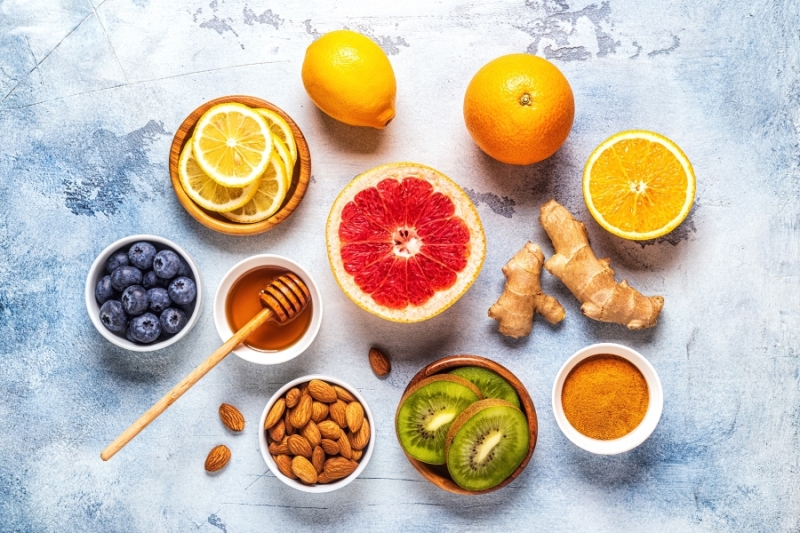The nutrition for immunity segment remains strong despite the decreasing relevance of the COVID-19 pandemic. We catch up with representatives of Novonesis Human Health Biosolutions, FrieslandCampina Ingredients, Solutex and PharmaLinea about the current challenges and opportunities in the sector.
“Although consumers are taking a more proactive approach to seeking products that boost health and immunity than ever before, they are still demonstrating some skepticism toward nutritional supplements and concerns about the safety and benefits of it,” Jakob Dalmose Rasmussen, VP at Novonesis Human Health Biosolutions, tells Nutrition Insight.
“Therefore, it is necessary that such immune health ingredients are safe, manufactured under stringent quality standards, fully researched and can deliver scientifically proven benefits.”
Sonia Moreno, CMO at Solutex, adds: “Immunity is a hot topic among consumers, and increasingly more people are looking for solutions that not only provide immediate immune support but also contribute to long-term health and resilience against infections and chronic conditions.”
The evolving immunity market
The experts highlight an increasing relevance of the healthy aging segment, inflammation and overall well-being in the immunity market.
Dalmose Rasmussen points out: “People worldwide are living longer: the number and proportion of people aged 60 years and older in the population is increasing. By 2030, one in six people in the world will be aged 60 years or over.”
“Furthermore, informed adults are seeking alternative ways to maintain a healthy and active lifestyle,” he adds.
Meanwhile, Solutex’s Moreno highlights the significance of inflammation. “With research suggesting that inflammation plays a critical role in immunity, this presents a tangible opportunity for nutraceutical brands to develop more specialized products that aid inflammation.”

More people are looking for solutions that provide immediate immune support but also contribute to long-term health and resilience.“Traditionally, inflammation has been treated as a separate category from immunity. However, with the latest science suggesting a closer link between the two, inflammation presents a significant opportunity for brands to tap into a differentiated space.”
Moreno explains that while there has been a decline in customer and consumer interest in immunity products overall from the peak levels seen during the pandemic, consumption still seems to be higher than pre-pandemic levels. “Maintaining a strong immune system is a primary health concern for consumers.”
PharmaLinea’s science and research director, Maja Orešnik, similarly argues: “More informed individuals are now looking beyond the familiar vitamins and instead seeking comprehensive solutions that address overall well-being and long-term immune support.”
“Even with supplements, immune health is often addressed by pharmaceutical companies that are used to traditional ingredients — vitamins, minerals, beta-glucans and selected herbs such as elderberry. While there are new, exciting and clinically proven ingredients entering this segment, they often require additional marketing efforts in order to obtain relevant attention and market share.”
“This can, in a way, pose a challenge. However, it can also provide an opportunity for market differentiation,” comments Orešnik.
Emerging anti-inflammatory ingredients
Moreno says that the increased awareness of inflammation’s role in immune health presents an ideal opportunity for the industry to refresh the market with products that support inflammation and utilize emerging ingredients, such as SPMs (specialized pro-resolving mediators).
“Among consumers, there’s also an increased awareness of the importance of gut health, stress management and lifestyle factors in supporting immunity. Products that integrate these aspects are likely to see continued growth.”
Orešnik says she expects to see “additional development in the gut-immunity axis with dedicated probiotics, prebiotics and postbiotics,” adding that since many immunity-targeting ingredients originate from traditional medicine, “we can expect further regulatory limitations on the EU market.”
“Proprietary scientific support can be a great opportunity for herbal ingredients — when the markets are driven by the combination of various commodity extracts, support on your own ingredients and finished products can bring much-needed differentiation and help you earn the trust of consumers,” she continues.
“Otherwise, we can expect more formulations for specific situations, such as seasonal allergies and the beginning of the school year, as well as various positionings — immunity and sleep, energy, hydration and more.”
“This also means that the range of raw materials in immunity products will be expanded.”

People worldwide are living longer: the number and proportion of people aged 60 years and older in the population is increasing.Matevž Ambrožič, marketing director at PharmaLinea, says that technology also taps into these issues. “Many brands are deciding to launch testing devices and health-related apps.”
“For example, dsm-firmenich offers a vitamin D self-test kit with their product d.velop, and Ritual leverages social-media-like components in their app to boost consumption of their multivitamin products.”
Lactoferrin for immunity
One such emerging ingredient for immunity, according to FrieslandCampina Ingredients’ global marketing lead for biotics Zillinger Molenaar, is lactoferrin.
“Lactoferrin, an ingredient that has long been used in early life nutrition solutions to support infants’ immunity, is becoming more popular in the adult nutrition space now, too, with more people recognizing its proven health benefits,” she explains.
“This nutrient is also a great option for combining with other ingredients like zinc to develop multi-functional products that promote whole body well-being.”
She adds that not only is lactoferrin “famed” for its immune health benefits, but there is also emerging evidence pointing to its skin health benefits, which can help to “improve acne, psoriasis and diabetic ulcerations.”
“Plus, with more consumers making the link between the negative impact of stress on their immune health, we expect to see interest grow in products that manage mental well-being to avoid getting ill.”
She concludes: “Ingredients consumers are also becoming better educated and more discerning on the kinds of products they buy to help them stay healthy and are more likely to seek scientific substantiation.”

